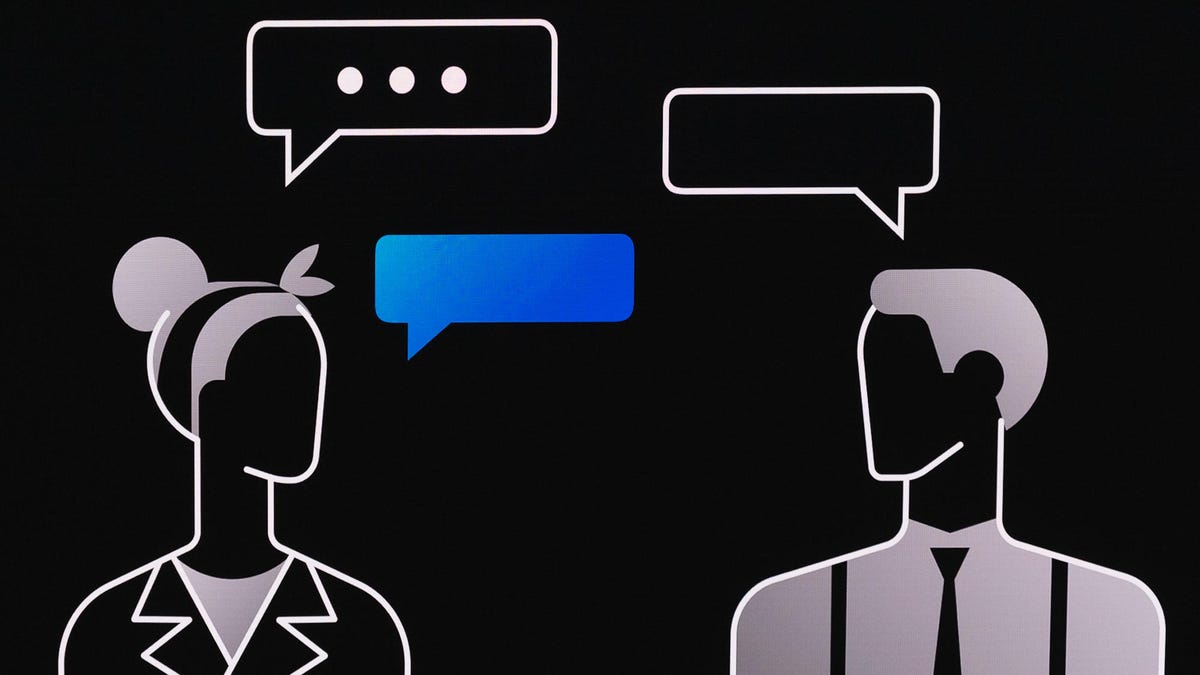Facebook wants to make it easier to message businesses
The social network doubles down on its e-commerce ambitions at its F8 Refresh conference. Plus: updates on augmented reality and AI efforts.

Facebook users message a business for a variety of reasons, including customer support.
Facebook is trying to make it easier for users to message businesses, as more people have turned to online shopping during the coronavirus pandemic.
The social media giant said Wednesday that app developers will have the tools they need to build more messaging experiences on Facebook's photo service, Instagram , where people already go to shop and get customer support.
And Facebook-owned messaging app WhatsApp will support more types of messages, too, Facebook said, such as letting people know when a product is back in stock or when the COVID-19 vaccine is available in their area. More than 175 million people message a business on WhatsApp, according to Facebook. The messaging service will also include reply buttons and prewritten messages so users don't have to type out common responses.
Facebook is also testing a way for people to opt into messaging with businesses, through a new feature called Login Connect with Messenger, another of Facebook's messaging apps. The tool is still being tested but will be widely available in the coming months, the company said.
The announcements came during F8 Refresh, the company's mostly annual developers conference, taking place virtually for the first time because of the pandemic. Social networks such as Facebook have been pushing further into e-commerce as they explore more ways to entice people to stay connected on their platforms.
As the company doubles down on its e-commerce ambitions, people who use its products might be wary of sharing data about their shopping habits with the world's largest social network, due to its numerous privacy scandals.
This year, WhatsApp faced a backlash from users, with some threatening to delete the app over worries that WhatsApp would read their messages and listen to their phone calls. WhatsApp pushed back, noting that it had updated its privacy policy to include details about how data could be used and shared when a user messages a business on the app.
Augmented reality and artificial intelligence
E-commerce isn't Facebook's only area of focus. The company has been working on a pair of smart glasses, expected to be released later this year.
Facebook said it's also providing the tools needed for creators to build augmented reality effects that blend the physical and digital worlds, including on group video calls that take place on Messenger, Instagram and Facebook's video chat product, Portal. Some of these effects include online spaces, such as a hangout in space or a campfire with groups of people.
The social network said a migration of all its artificial intelligence systems to an "open source machine learning framework" known as PyTorch will help the company improve its services, research and engineering work.
Facebook has been grappling with more complex content moderation issues as it rolls out new ways for people to share their thoughts. The company uses a mix of automated technology and human reviewers for these tasks, but detecting offensive comments can be tricky. For example, users can go on a long rant in a video, but phrases that violate the company's rules against hate speech might be sprinkled throughout their comments. Someone could create a meme that combines an insult with an image, so context is important for computers to understand.
Facebook Chief Technology Officer Mike Schroepfer compared the PyTorch migration to having one screwdriver that can do everything, versus having to use multiple tools.
"This means that if I'm an engineer at Facebook and I have a problem I need to solve, like eliminating hate speech or misinformation or bullying, I now have at my fingertips this toolbox of state of the art models that I can put into production much more quickly," he said.

